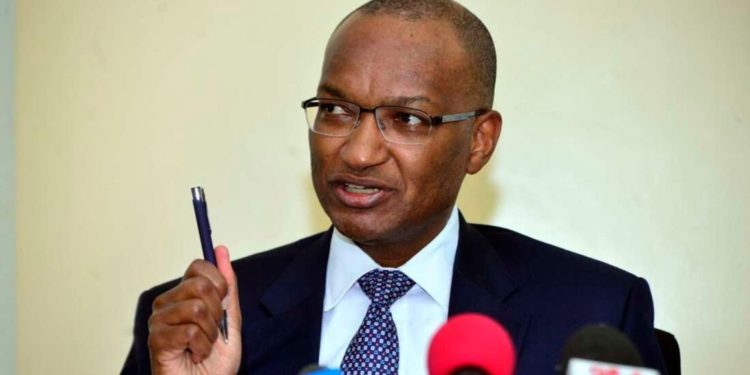CBK tests market with digital Kenya shilling
The proposed Central Bank of Kenya (CBK) digital currency will for the first time allow Kenyans to directly keep cash at the apex bank, placing it in direct competition with commercial banks for deposits.
The Kenyan version of the Central Bank Digital Currency (CBDC), whose introduction has been under debate for the last few years, will be exchangeable on a one-to-one basis with physical cash.
It will enable customers to bypass banks, with the CBK taking on a new role of keeping track of holdings, transactions and settlements.
The CBDC is being eyed mainly to ease cross-border payments and complement mobile money in the local digital payments space.
The CBK on Thursday invited the public to give their views on the potential introduction of the digital currency, in a shift from its original opposition to crypto assets.
The regulator noted, however, that having its own digital currency for retail customers could lead to a migration of deposits from commercial banks to the CBDC.
This, it warned, would have far-reaching effects on the ability of the lenders to continue offering sufficient credit to the economy.
“A CBDC could make the financial system safer by allowing individuals, private sector companies and non-bank financial institutions to settle directly in central bank money, rather than bank deposits,” said the CBK in the discussion paper.
“This would significantly reduce the concentration of liquidity and credit risk in payment systems. This in turn reduces the systemic importance of large banks and PSPs [payment service providers]. However, the central bank would enter into direct competition with the banks and payment service providers it regulates.”
Banks rely on customer deposits for funds to lend to both the private sector and the government as part of their role as financial intermediaries in the economy.
Read: GSE-FSI returns -1.59% on the back of 9.69% drop in Access Bank share price
Losing deposits, especially those accessed at low cost, would squeeze bank interest margins, forcing them to raise the cost of loans to mitigate the risk of lower profits.
“If significant deposit balances are moved from bank deposits to CBDC, banks’ ability for credit creation could get constrained. Since central banks cannot provide credit to the private sector, the impact on the role of bank credit needs to be well understood,” said the CBK.
“While a significant shift from deposits to CBDCs can pose risks to financial stability, this could be controlled if the banking sector is given sufficient time and flexibility to adjust.”
The CBK added that it could also stem the shift in deposits by not paying any interest on cash held in form of the digital currency, which would allow banks to compete by offering a return on funds held in their accounts.
Kenyan banks have in recent years seen their profitability rise to record levels, driven by higher interest and non-interest income.
They access low cost savings, paying an average of 2.5 percent in savings rate and 6.5 percent in deposit rate, while lending to customers at an average of 12.1 percent.
They are also able to lend at similar interest rate levels to the government on a risk-free basis through purchase of bonds.
A digital currency could curb the effectiveness of monetary policy and increase risks of money laundering, the CBK said.
The regulator, however, highlights a number of advantages in issuing a digital currency for the economy, which include easing and lowering costs of cross-border payments with other jurisdictions that design similar currencies.
It also views CBDC as a safer alternative to the existing, unregulated digital currencies such as Bitcoin, which it has in the past warned Kenyans against buying.
These cryptocurrencies are not tied to the value of an asset and are therefore highly volatile and speculative, with no recourse in case of loss through hacking or loss of wallet passwords.
Their value is also derived from processes like mining that are meant to maintain scarcity and anonymity —which also opens them up to abuse in dirty cash deals.
“CBDC could potentially shield the public from the risk of new forms of private money by providing safer and more trustworthy payment services than new forms of privately issued money-like instruments, such as stable coins,” said the CBK.
For the digital currency to work, the bank said, all countries in the region needed to participate in order to flatten “the multi-layered correspondent banking structure” and shorten the payment chains.
Tanzanian officials said last year they were working on a directive from the president to prepare for the introduction of digital currencies.
In Africa, Ghana and Nigeria have already piloted their CBDCs, while Kenya, South Africa, Rwanda and Tanzania have been conducting research ahead of rolling out their own versions.
The International Monetary Fund says around 100 countries are exploring CBDCs, at different levels — researching, testing, and distributing to the public.
The Bahamas, China, and the Eastern Caribbean Currency Union —which have actively rolled out their digital currencies— have placed limits on holdings of CBDCs to prevent sudden outflows of bank deposits into the digital currencies.








